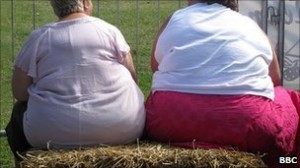Is breakfast really the “most important” meal of the day? Maybe, at least that’s what they told us in health class.
So if breakfast is the first meal of the day and you’re trying to lose weight, it’s probably a smart idea to make your first meal a good one.
And since most dieters judge food by two simple factors: fat and calories. Here are seven foods you should ditch and seven foods you should switch to if you’re looking for a better breakfast.
English Muffin or Bagel?

Sorry, but a bagel with a schmear of cream cheese just isn’t Kosher – at least not for dieting. You’re better off switching to toasted nooks and crannies dripping with melted butter.
*English Muffin, with butter
5.8g total fat
189 calories
Bagel, with cream cheese
8g total fat
436 calories
Apple or Banana?

Let’s face it, both apples and bananas are awesome – probably the healthiest foods on this list – but, if you’re looking to cut calories, go with the apple.
*Apple
0.17g total fat
50 calories
Banana
0.33g total fat
100 calories
Blueberry Yogurt or Oatmeal?

Even without the “probiotics,” eating a light yogurt is smarter than a bowl of old fashioned oatmeal.
*Dannon Light’n Fit Blueberry Yogurt (6oz)
0g total fat
80 calories
Old Fashioned Quaker Oats, with water (1/2 cup)
3g total fat
150 calories
Coffee with Skim Milk or 2% Milk?

For most people, missing their morning coffee is grounds for murder. So please, drink up! But make sure you stick with non-fat milk, not 2%
*Starbucks Coffee, with non-fat milk (short)
0g total fat
35 calories
Starbucks Coffee, with 2% milk (short)
2g total fat
50 calories
Wheaties or Raisin Bran?

One cereal uses professional athletes to push product. Another is peddled by the sun. The sports stars win, go with a bowl of Wheaties.
*Wheaties (1 cup)
1g total fat
110 calories
Raisin Bran (1 cup)
1.3g total fat
190 calories
Turkey Bacon or Pork?

It isn’t real bacon – it might not even taste like it – but the fat and calories don’t lie. Spare a pig, eat a turkey!
*Butterball Bacon-Style Turkey (1 slice, 18g)
3g total fat
40 calories
Pork Bacon (3 slices, 19g)
7.9g total fat
103 calories
Grapefruit Juice or Orange Juice?

Grapefruit juice might not taste as sweet, but choke it down. It’s better than orange juice. And when you drink grapefruit juice, it’s less likely to squirt in your eye.
*Tropicana Grapefruit Juice (8 fl oz)
0g total fat
90 calories
Tropicana Orange Juice (8 fl oz)
0g total fat
110 calories

